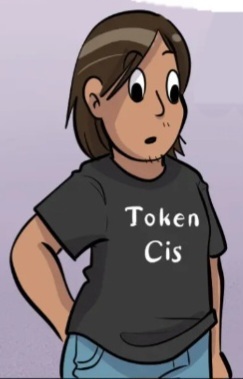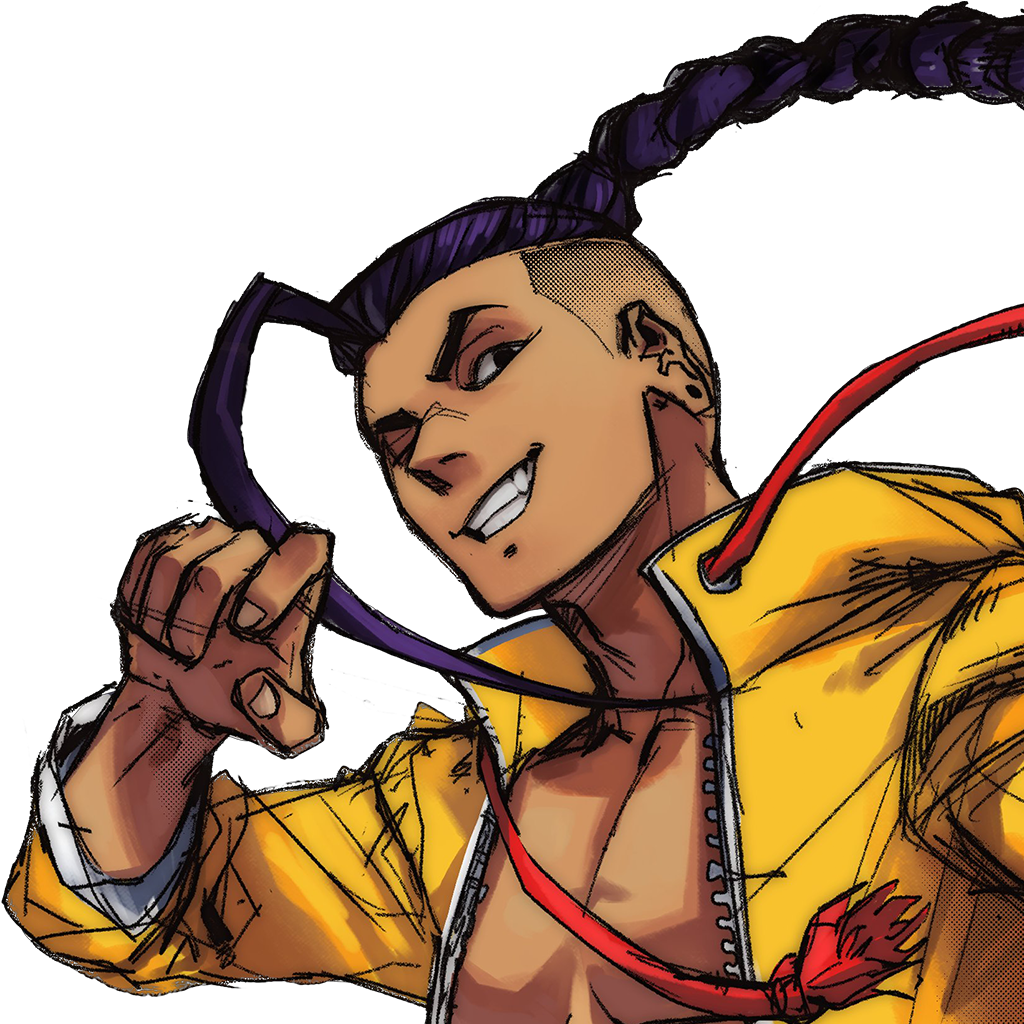Seen enough marvel shlock, want something that isn't subversive within a system but directly fights against it and loudly
Keep your negative takes out please I've had it with the irony poisoned doomerism of late
Sorry to Bother You is the most explicit example that I can think of.
Snowpiercer maybe? If They Live is too symbolic, that might not work, but it's the closest I can think of. Also Revolutionary Girl Utena, but that's entirely metaphorical. I just really like it and will recommend it at the drop of a hat.
Someone else recommended it and op said they wanted actual revolutions.
People (including me) ask this every week but its still not enough. Why is it so hard to find something genuinely revolutionary? Does some unspeakable fate happen to anyone who tries to make revolutionary art that everyone else knows about except me???
Anyway I recommend The Spook Who Sat By the Door
Edit: Sorry if that came across as doomer shit it wasnt meant to be doomer shit
Conditioning. People have genuinely been conditioned to see any big changes to the status quo as evil. Except when it's a glorious revolution against some totalitarian guy that establishes "democracy", like in Hunger games. The entire entertainment apparatus is aimed at showing revolutionary thought and fantasy about alternative social structures as bad. You only have kingdoms that are some good. Democracies that are sometimes corrupt but always good, cause voting and dictatorships, that are both fash and commie coded at the same time.
That said, I've been enjoying Red Rising so far.
I’ve been enjoying Red Rising so far.
What's that about?
English speaking people largely don't want a revolution, the amount of people who do is so small that there isn't a market for commodified froms of entertainment under the capitalist mode of production. The amount is so small that the size of the talent pool limits the amount of independently developed art I'd expect to see even. This is slowly shifting, but you usually end up with something "progressive" with an anti-capitalist veneer if you're lucky (I know Boots is cool, but maybe Sorry To Bother You fits in here?).
"Revolutionary" is still a step too far and sounds pretty crackpot to most English speakers
It's not even tha they don't want. They don't know if they want or not, and all they want is that change to status quo == ebil
Revolutionary themed films are insanely popular, when made. See Star Wars.
That may play a role in why they aren’t often made.
English speaking people largely don’t want a revolution
Nah.
People who fund movies don't want a revolution.
Nah you're not saying CIA or anything. But seriously, I can't be alone in wanting to see art that is absolutely seething against the way the world is and isn't afraid to want to burn it to the ground and optimistically show that better is achievable
It’s funny, there’s a shitload of movies about that one good Nazi (or films featuring that one good Nazi), but it’s hard to think of a single Hollywood film where communists are even mentioned, let alone portrayed as good.
Enemy at the Gate is a movie about how Communism can't work because Rachel Weiss wants to bang one dude but not the other dude.
I recently attempted a rewatch. The film begins with the Soviets shooting their own soldiers, something which never actually happened. I first saw enemy at the gates as a kid and didn’t know that I was being brainwashed.
That's mythical? I always figured it was real and another unfortunate consequence of the situation created by fascists.
There were blocking divisions tasked with preventing desertion. They did not sit behind half-unarmed rifle divisions machine-gunning them if they retreated. Instead blocking divisions were made up of seasoned, reliable troops. Their job was to help stabilize the line. They'd stay either on or just behind the line. If they encountered soldiers who were lost, separated, or fleeing they would send them to assembly areas to be re-joined with their units. Some fleeing soldiers were executed for desertion, but that was a small percentage. If blocking troops intercepted 100 fleeing soldiers then 1 of them was executed, 10 were tried and sent to penal units, and 90 were returned to their units and sent back to the front line.
They served other purposes like protecting rear areas from infiltrators and helping with communications and logistics. And they were all fully equipped soldiers who often fought on the front lines themselves.
The notion of Soviet "Not one step backwards" orders is oversold. There was never an incident where Red Army soldiers were machine gunned by their own side while trying to retreat, and to the best of my knowledge there were no mass executions for retreating when the situation was untenable.
Also the "One man gets ammo, one man gets a rifle" thing never happened. The supply situation was never so dire that soldiers weren't given rifles and ammo.
Overall the movie undermines the heroism and valor of the people who fought and died defending Stalingrad, and it's really very crass. They were heroes and they deserved a better and more honest story than what Enemy at the Gates gave them.
I've always had fun watching that movie, but there was definitely some painful both-sidesing, which is always an indicator that the narrative is dubious. Anyway, thanks for a counter narrative. American media can rarely admit that people fought to protect the Russian Revolution because they really wanted to.
Back on the old sub I had a saved post someone made of a list of these kinds of films. All of them were made in non English speaking countries, which makes sense when you think about it since English speaking countries are less likely to promote taking on a system they benefit from. But since the sub is gone that post is gone so I have lost the list.... I only remember one film mentioned which was The Battle of Algiers
Revolutionary Girl Utena is something I haven't seen yet but I'd say the name suggests its about taking on the system.
Antz is about taking on the system unironically lol. Its something worth noting that in western media you're more likely to find people fighting oppressors in children's media than in adult media.
Hell yeah, Utena. Fighting the patriarchy AND the "girlboss feminism" that doesn't subvert systems but merely replaces some men at the top with some women.
CW: abuse and rape.
I deleted previous comment cos I misread what you said.
I think I should just put on hold all the other shit I'm watching and actually watch Utena
If you have the url still, archive.org may have it in the wayback machine.
If you want revolutionary-themed films, then the revolutionary film maker in both artistic and political sense is still Sergei Eisenstein. Lots of his work happened in the silent movie era and can be challenging to watch for modern viewers but I think it is worth the effort.
I can recommend The Strike (1925) about a strike in tsarist Russia and his more famous works The Battleship Potemkin (1925) about the mutiny and Alexander Nevsky (1938) that tells the story of the medieval Russian leader as an allegory for the fascist German invasion that was impending at the time.
I showed Battleship Potemkin to my young kids and they loved it. I’m trying to find the time to watch Ivan the Terrible. I was only able to see the opening scene but it was spectacular.
Agreed. And if you find them a bit tricky to get into quite a few have had great modern re-scores. Battleship has versions out there with alternate soundtracks done by the likes of The Pet Shop Boys and Nitin Sawhney.
Strike is amazing. Iirc the protagonist is the workers as a whole, not individuals, and it’s one of the few times police are portrayed as unequivocally bad and people fighting them as unequivocally good
I just watched 18 min into his docu-film October but there is an animal death in there, :( back then they didn’t have laws against that sort of stuff, so it’s probably real. Just something to watch out for if you decide to watch old films or October.
in 2018, the USA Network/Netflix put out 1 season of a show titled Damnation, about a man trying to organize an insurrection in early 1930s of indebted farm communities against bankers, industrialists, and their thugs in law enforcement + Pinkerton's. it pulls zero punches and was cancelled after one season.
even so, it's incredible that the first season was made and distributed. it's like a combo of Steinbeck and a violent Western, with elements of corporate conspiracy at the national level.
Hot, damn! I'm 2 eps in and it's amazing this exists!😍 Thanks!
awesome, I loved it. there isn't much for scenes or clips on YouTube, like it went deep under the radar. there's a fairly campy promo trailer up there and the comments are full of people insisting it's extremely underrated and furious that it got cancelled when so much junk on Netflix gets renewed. I don't even think the fan base is necessarily leftist, but the themes resonated it seems.
and I'll be damned if the writers didn't do some homework about the history of the midwest during the American labor wars, which is some history that is never told anymore.
I wanna tell everyone about this. It pushes all my buttons. This should be the official show of antiwork. My mind is blown, I'm gonna be so pissed when I get to the end.
In anime there are a few I can name but I can only think of a couple movies which I'll bold.
Full Metal Alchemist: Brotherhood
Tengen Toppa Gurren Lagann
Kill la Kill
Promare (movie)
Little Witch Academia also has the backdrop of class struggle but doesn't truly venture into being revolutionary.
Deca-Dence is explicitly revolutionary and explicitly marxist in its themes, but ends in a way I was unsatisfied with. Still enjoyable though in my opinion.
Ghost in the Shell might tick this box as another movie for explicitly fighting the system too.
Psycho-Pass isn't revolutionary but explores being part of the oppressive system that NEEDS a revolution in a fascinating way. Only season 1 is really good though, I would recommend pretending nothing else exists.
I think some Gundam fits into this too but I personally haven't watched any Gundam so can't say which would be the right suggestion.
To add to this list, Eureka 7’s protagonist group are straight up revolutionaries. Both aesthetically and through their willingness to take violent direct action against the state. This becomes a major plot point over the couse of the series as the main character naively takes part in and then attempts to reject the violence inherent to revolutionary struggle.
Fullmetal Alchemist is a liberal revolution against a facist state. Definitely an improvement, but not necessarily leftist.
It's revolutionary and it's good though. OP didn't say anything about being communist. I would post any feudal revolutions too that I could think of if we had any, Liberals were cool when they were killing monarchs.
Liberals were cool when they were killing monarchs.
So it goes.
At least they solve their problems by killing people, mostly.
But yeah, FMA has some issues. The core premise of the story is "Actually the Imperial Japanese Armed Forces felt very bad about committing atrocities in China". The whole thing is sort of a soft apologia for Japan's wartime atrocities.
I'd be more sympathetic to the Imperial Japanese Armed Forces if they led a coup with the goal of being prosecuted for their war crimes, at least. Which totally proves your point, though I don't know if it was as intentional as you make it sound
Intent is a slippery thing. FMA is, at the textual level, a story about Axis power analogues using super-weapons made from mass human murder to win a war. Then, later, the people who used the super-weapons regret what they did and stage a coup against the fuhrur.
That's just the textual level, basic story.
It's not very hard at all to say that the Japanese author, consciously or not, is writing an apologia for the conduct of his nation during WWII.
I mean, I think that's a valid reading. And if in our world the Japanese military had been ordered by the emperor to do the Rape of Nanking and afterwords overthrew the government as a reaction against that, it would definitely read like that. But though it definitely isn't as critical as it should have been, it's still a far cry from all of the actual WWII military apologia you can find in anime. There are a whole lot of writers out there who are open about thinking Japan has never done anything wrong, and I really don't think she's even close to being that. Though like I said, it's definitely way more sympathetic to the soldiers than I think is fair. (Also, the author has said that she views the series as being more about the genocide carried out by Japan against the Ainu people indigenous to Hokkaido.)
Only season 1 is really good though, I would recommend pretending nothing else exists.
I think season 2 of Psycho-Pass is underrated. It's not as good as the first, but if you like the first season enough that "The same thing, but just not as good" sounds like a good time, I'd still watch it.
Probably would've been better if they were in the other order, since the first season has the more philosophically interesting villain.
Yeah I'll accept that.
Season 1 is the best. Season 2 is ehh by comparison. The movie tries to make up for this and does a better job than season 2 but still doesn't quite get back to season 1.
Then it goes completely off the deep end.
depends what you mean by taking on systems
They Live is about the best propaganda in film for class consciousness I can think of
I mean direct revolutionary calls to action. They Live is still cloaking itself in symbolism. Where's the cape shit where the hero turns around and destroys the status quo instead of defending it, and are viewed by a heroic lens
Yeah, I was gonna post this further up. The Matrix is pretty much the definitive revolutionary blockbuster.
The Matrix is a movie about putting on fetish gear and shooting cops. I mean, how did this even get made?!
It's not even subtle about it either. My assumption has always been that studio execs were as distracted by the bullet time and stylish effects pitched as most of the teenage boys in the audience were.
Also about being trans/queer af while you do it.
Seriously, the trans themes are so fucking loud that the only way they were able to make it more clear in the new one was to hit you over the head with it.
Newest matrix rocks btw
I watched the first third of The Battle of Changjin Lake yesterday, I thought it was great aside from the shitty white actors and the video game-style special effects. They also slip in a character saying the US started the Korean War, which would make libs’ heads burst if any of them had the intellectual capacity to watch this film.
The 1979 anime (based on a 1973 manga) Rose of Versailles is about the downfall of the french monarchy.
It's probably the very best depiction of revolution in any media I have seen thus far, so even though it's about a previous stage in Historical Materialism, it's definitely a must watch (despite something CW-worthy late in the anime that was handled horribly imo).
Unfortunately, the author became rich and went lib in the 1980s.
another reason to watch: The famous guillotine gif is from there
Also the MC is a female at birth but raised as a male by their father badass that has conflicts with their gender and how they identify and is inspiration for all shorts of future characters (Griffith in Berserk, Utena etc)
Hunger Games. Parts of the ending are a little lib but it is starkly about overthrowing the oppressive ruling class (who live in the Capitol and are literally called Capitolites) who are the owners of the means of production.
Hunger Games is an incredibly interesting series to me because it was written by a person who is almost unarguably (and self-admits) to being a liberal and yet gets "revolution" as a concept the least wrong of all the YA series that achieved some level of popular success. I was rereading it in my downtime, and watched the films, and yeah "2 movies for 1 book bad" and whatever but the series as a whole is a lot better than I remember. I dislike how much time is spent agonising over and over on the same few points in the last book but it's a series centered on Katniss and not the whole country and she's very traumatised so I can't earnestly complain about it.
But I like the part where the revolutionaries realize that even the ones who live in the Capitol aren't safe from the tyranny of their state, as they have their families killed or they're sold into sex slavery or their tongues cut out for speaking against them, so it's a bargain of "If we give the Capitol citizens all the treats we can muster, and in fact have the entirety of post-apocalyptic and post-reconstruction America funnelling treats into your maws and you can do subversive fashion as long as it's not actually subversive and so on, then they won't have any reason to disobey us.", which is obviously a play on current day norms with the third world and America itself.
And the obvious Roman themes to parallel modern America. They even do the 'vomitorium' thing but it's actually them taking pills to make them vomit so they can eat more food, which was what the myth said the Romans were doing rather than it just being an arena exit, showing how they're even more 'decadent' and wasteful than the height of Rome actually was.
I think overall Hunger Games strikes a curious middle point between a liberal understanding of what revolution is and what a socialist understanding of what revolution is. And the difference between individual acts of defiance (book 1) and broader uprisings (book 2 and 3) and how that's both very different to how it works in reality (the dam scene; basically the entire civil war) and yet mutually feeds off each other (the scene in the first half of book 2 with Rue's district). I think if you don't have a materialist socialist view of the world then you lose a bit of understanding, sure ("Oh, well Panem sucks but thank god we don't have it as bad as them right now and the events in the book prior to the revolution aren't happening right now as we speak! This could be our future if we aren't careful!") but it's also approachable enough despite its revolutionary undertones that it achieved basically household popularity, kinda like James Cameron's Avatar and a couple other things.
Yeah. I actually was a big fan of Collins from her previous series, Gregor the Overlander, and I given the context from that think the overall message she was going for was more anti-war than anti-capitalism. It was quite a ride for me actually following the series before the first book even launched lol.
The 3rd book (and then movies) definitely suffered from the publishing schedule, it felt incredibly rushed, and the message got pretty murky:
spoiler
Especially since the resolution of the obligatory love triangle involved pulling a marvel-realizing-a-villain-is-right on Gale, having him and his violent tactics be responsible for the rebel forces bombing a bunch of children and medics (including Katniss's sister) so that the message wasn't a clear cut "it's okay to use violence to overthrow oppressors." Then basically having Katniss settle down with the pacifist, petit-boug white boy.
I think the stuff with District 13 and President Coin was sort of interesting, because obviously everyone has an agenda and motives, but it got a little bit both-sides-y.
But yeah, on the whole it's a much better series than people tend to give it credit for — I think people tend to unfairly ding it because it sort of kicked off the whole YA dystopia genre, and judge it based on the works that followed.
Agreed.
I very much dislike the whole "Is the leader/revolution sometimes WORSE than the leader they're trying to overthrow!?!" Well I'll be, what an interesting plot point that hasn't been done before! But whatever, Collins is a liberal and I shouldn't expect much different from her ideological beliefs.
I do wonder if the cultural impact of the book has been a net positive or net negative though. One the one hand, I think it put an unnecessary amount of weight on a single act of defiance in its overthrow of a bad regime which I can't help but wonder has influenced many well-meaning people who might have otherwise gone full left into going "Well if I just manage to find this one act or habit that's SO subversive and defiant to US culture then I can be like Katniss and help end what the US is doing overseas!" and thus perpetuated individualism-but-left instead of realizing that it's imperative to talk to your peers and organise and strike and realize that collective action is how this capitalist regime will be overcome.
On the other hand, I don't think I'd prefer it if the Hunger Games didn't exist just because it's not a perfect representation of what revolutions are. I feel like it might be the closest a liberal like Collins could reasonably get to opposing the United States in its current concept and slowly pipelining people is valuable if frustrating.
Yeah, I agree that it's a net positive — it at least provides some common cultural ground for talking about revolution and class struggle with libs, which is def way more than most big YA series. It'd definitely be nice to see a less-lib series cover the same ground get the same level of cultural traction.
Elysium is a bit muddled but includes the invasion and overthrow of an elite class hoarding medical technology and invading their gated space community.
- The wind that shakes the barley
It's about socialist fighters in the Irish revolution.
- Che! Part 1 and 2
Take a guess. Part one is more fun and uplifting. Part two is Bolivia :(
- The Battle of Algiers
Algerians fighting the French.
Obligatory Žižek reference about wanting to give an arm and a leg to watch a movie titled V For Vendetta 2: What Happened Next.
an arm and a leg
no, he said he would "sell his mother into slavery" for it lol
Obligatory the manga is better. They libbed it up a lot for the movie.
The Matrix. Yeah the system is sorta personified by Hugo Weaving, but in the context of the film it's clear that he's just an enforcer and that what the free humans are actually at war with is the much larger system of control. The first two sequels kind of lose focus on this theme, focusing more on the love story and even going so far as to personify the system at a big robot face, but the most recent one goes all in on the metaphor with Neo's revolutionary message getting coopted and commodified by the system as a form of self preservation.
The Matrix is a movie where the heroes are terrorists who shoot cops and feds and blow up buildings. It's awesome.
The first two sequels kind of lose focus on this theme
I'd argue the sequels focus just as much on that theme, and are largely concerned with the idea that things which on the surface can seem to be subversive and challenging toward that system of control can actually be unwitting reinforcements of the system as controlled opposition.














